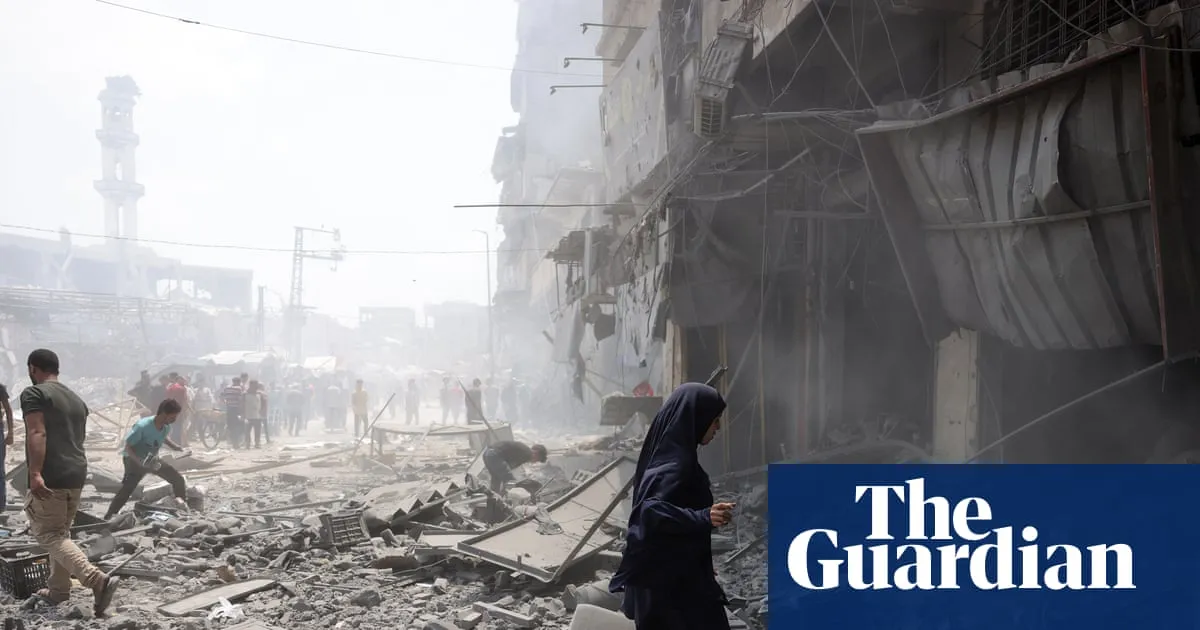
Israeli Prime Minister Benjamin Netanyahu has staunchly defended his government's controversial plan to take control of Gaza City, despite facing immense international backlash. Senior officials from the United Nations have issued stark warnings that this action could lead to “another calamity” in a region already grappling with severe humanitarian crises, including acute starvation. In a rare press conference held with foreign journalists in Jerusalem, Netanyahu stated that the plan, recently approved by the security cabinet, represents “the best way to end the war and to do so swiftly.”
During an emergency session of the UN Security Council convened in New York, officials expressed grave concerns regarding the potential repercussions of Netanyahu's plan. UN Assistant Secretary-General Miroslav Jenca warned that implementing these plans could exacerbate the already dire humanitarian situation in Gaza. "If these plans are executed, they will likely trigger another calamity in Gaza, reverberating across the region and causing further forced displacement, killings, and destruction," Jenca cautioned.
As international tensions escalate, Gaza’s health ministry has reported alarming statistics regarding malnutrition-related deaths. Recently, five more individuals, including two children, succumbed to malnutrition, bringing the total number of child fatalities to 100. The overall death toll from malnutrition now stands at 217, according to the ministry. Ramesh Rajasingham, OCHA’s coordination director, emphasized the severity of the situation, declaring, “This is no longer a looming hunger crisis – this is starvation, pure and simple.”
In his press conference, Netanyahu rejected accusations that his government was enforcing a “starvation policy” against the people of Gaza. While he acknowledged the existence of hunger and issues related to the food distribution system managed by the Gaza Humanitarian Foundation (GHF), he accused the media of spreading “lies” about the extent of the crisis. Despite these claims, the humanitarian situation continues to deteriorate, with reports of 26 Palestinians killed while seeking aid.
Eyewitness accounts from hospitals in Gaza indicate that at least 26 Palestinians have been killed while attempting to access humanitarian aid, including 15 individuals shot near the newly constructed Morag corridor. The conflict has claimed over 1,370 Palestinian lives since May 27, with many casualties occurring during attempts to obtain food. Netanyahu deflected responsibility for these fatalities, suggesting that “a lot of the firing was done by Hamas.”
Since the Hamas attacks on October 7, 2023, which resulted in the deaths of approximately 1,200 people, predominantly Israeli civilians, international journalists have faced significant restrictions in accessing Gaza. Most have only been allowed brief, organized “embeds” alongside Israeli soldiers, limiting independent reporting on the ground.
The controversial plan has sparked dissent among families of hostages still held by Hamas, many of whom participated in protests outside Israel’s military headquarters in Tel Aviv. Netanyahu's strategy has also created tensions between him and the leadership of the IDF (Israel Defense Forces), though it has not faced opposition from the Trump administration, Israel's key ally.
Netanyahu asserted that Gaza City and its surrounding areas house the last remaining strongholds of Hamas. “We have about 70 to 75% of Gaza under Israeli military control. However, two strongholds remain: Gaza City and the central camps in Al Mawasi,” he stated. He emphasized the need to “finish the job” and defeat Hamas, indicating that military operations would commence “fairly quickly.” Hamas has responded by insisting it will not disarm unless an independent Palestinian state is recognized.
International reactions have varied, with close allies like Britain warning that Netanyahu’s plan could prolong the conflict and deepen the suffering of Palestinian civilians. British Deputy Ambassador to the UN James Kariuki stated, “This is not a path to resolution. It is a path to more bloodshed.” On the other hand, the US has offered support for Israel, asserting its right to take necessary measures for its security and accusing nations backing the emergency meeting of prolonging the war.
According to Gaza’s health ministry, Israel’s military offensive has resulted in the deaths of at least 61,000 Palestinians, primarily civilians. This figure does not account for the thousands believed to be buried beneath rubble or those who have died indirectly due to war-related consequences. Israel’s Deputy Ambassador to the UN, Jonathan Miller, emphasized that pressure should not be placed on Israel, which he claims has suffered significant attacks, but rather on Hamas.